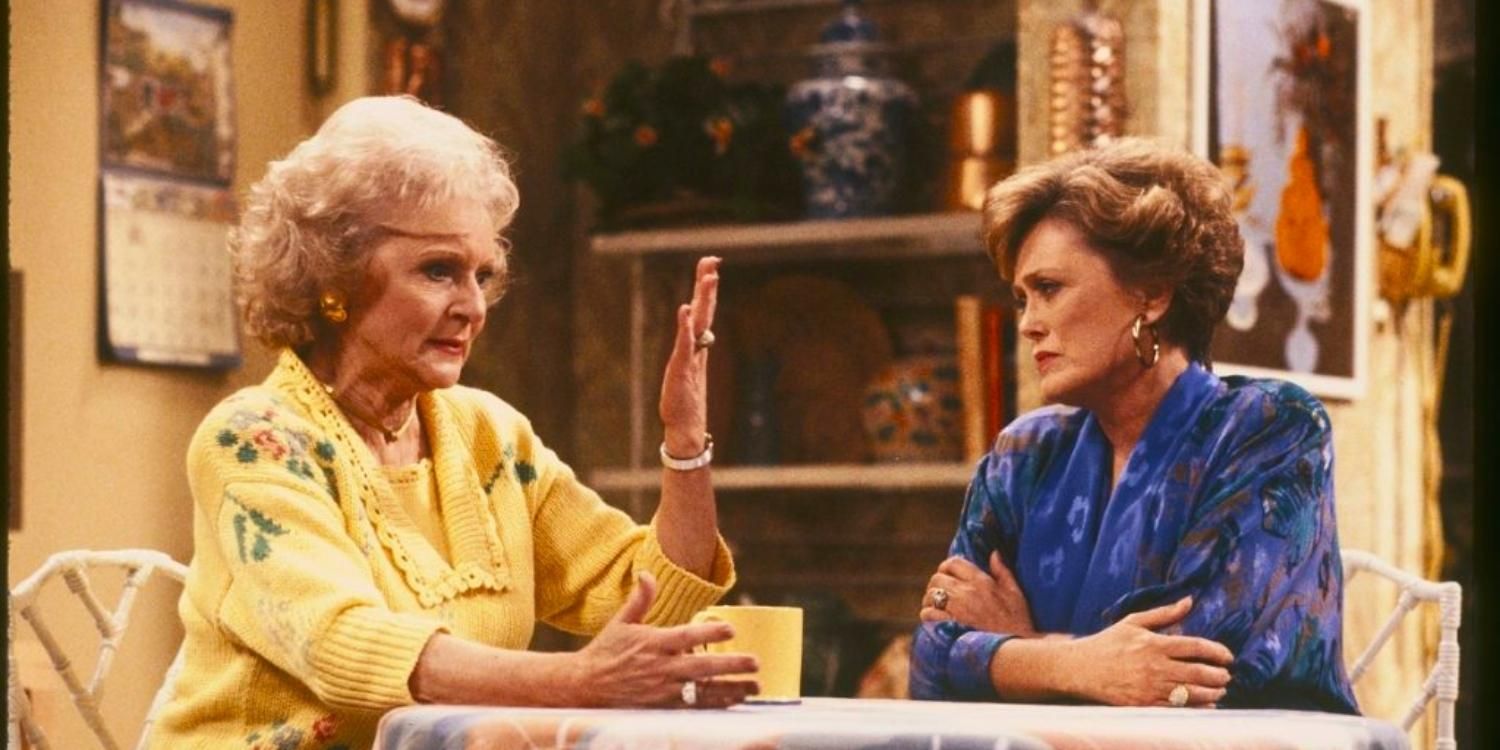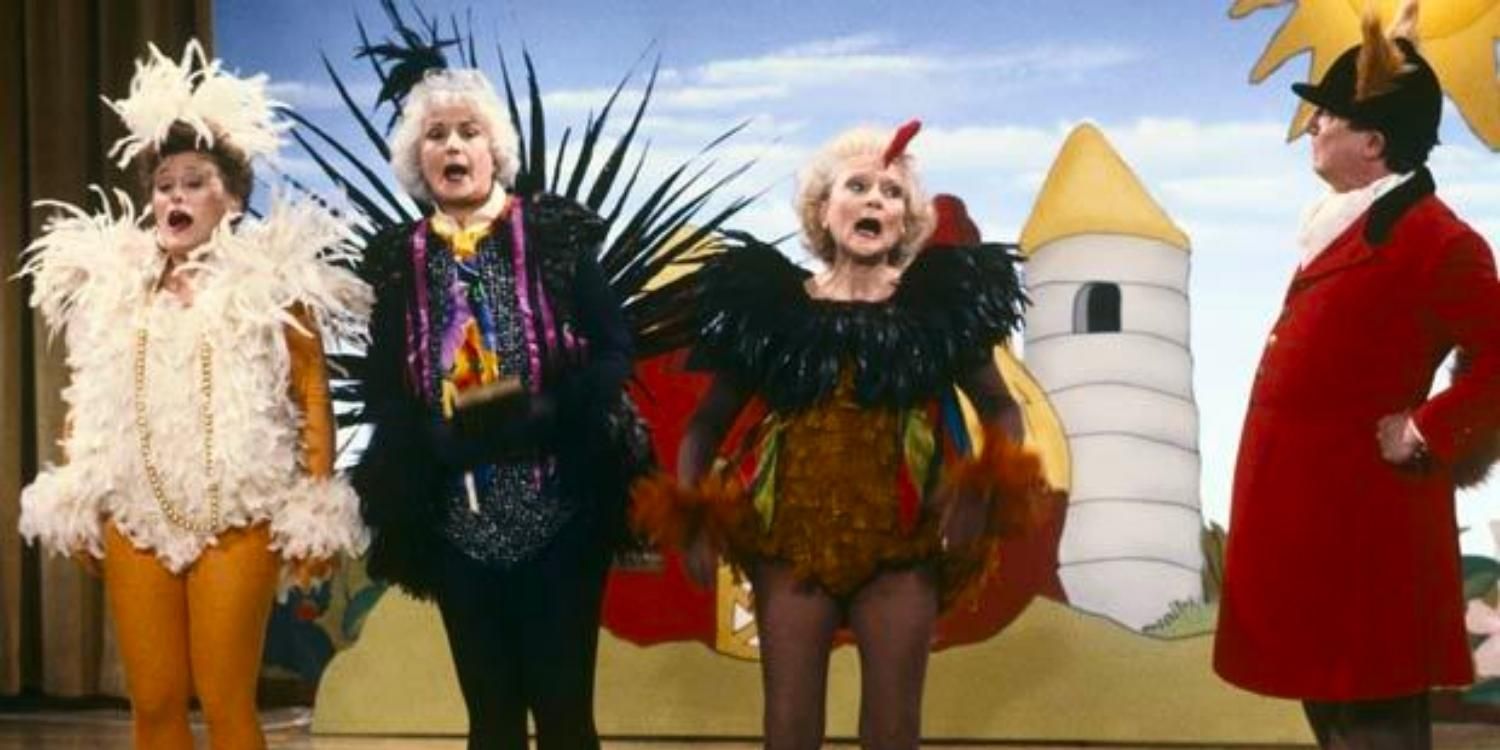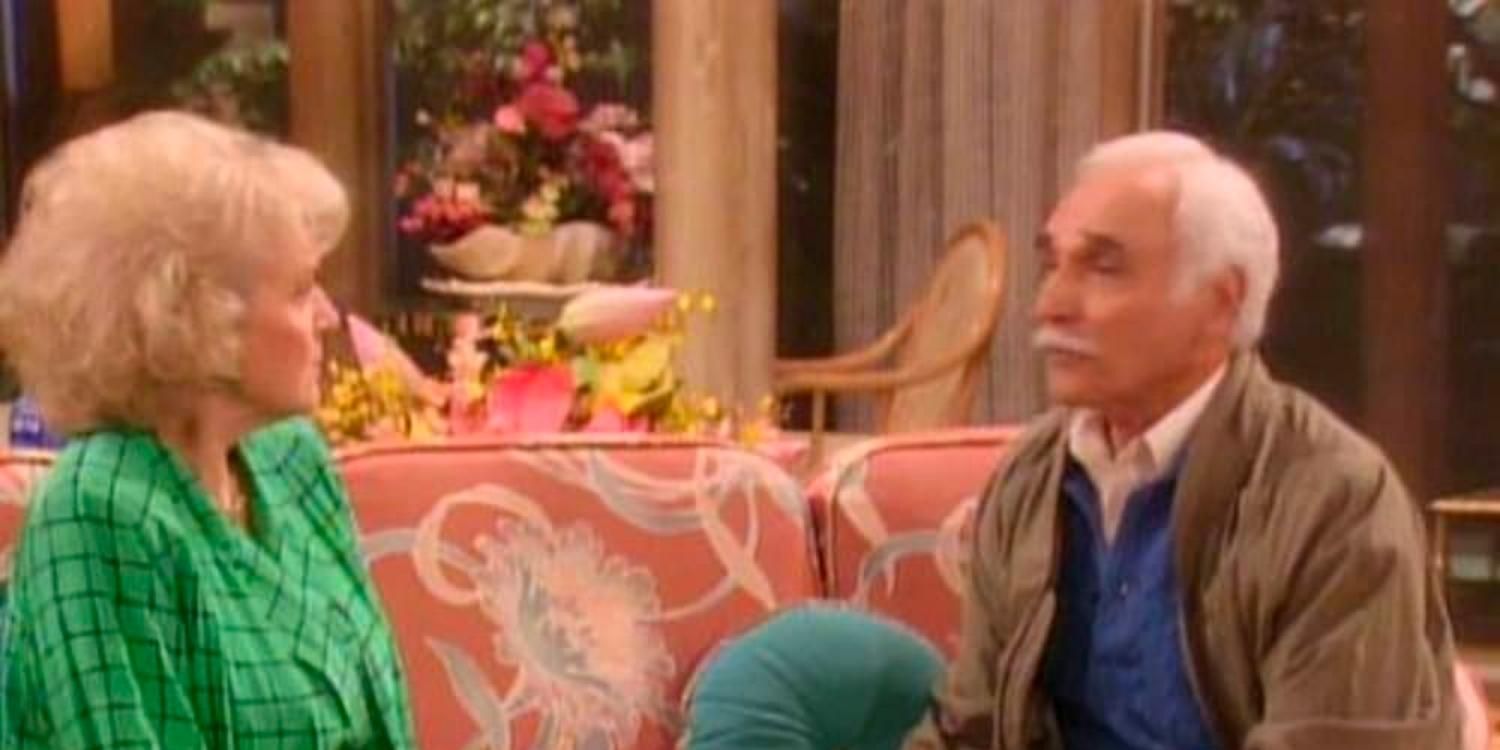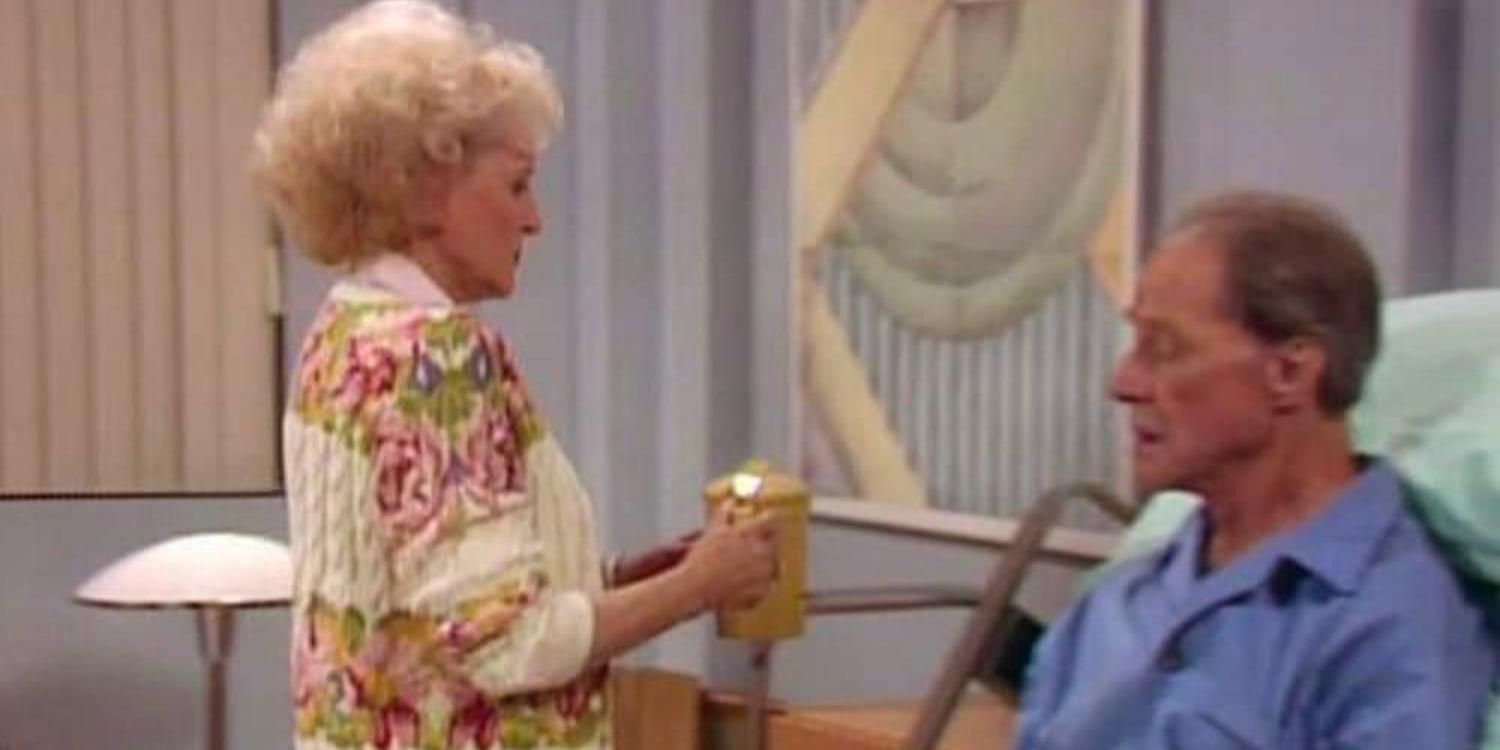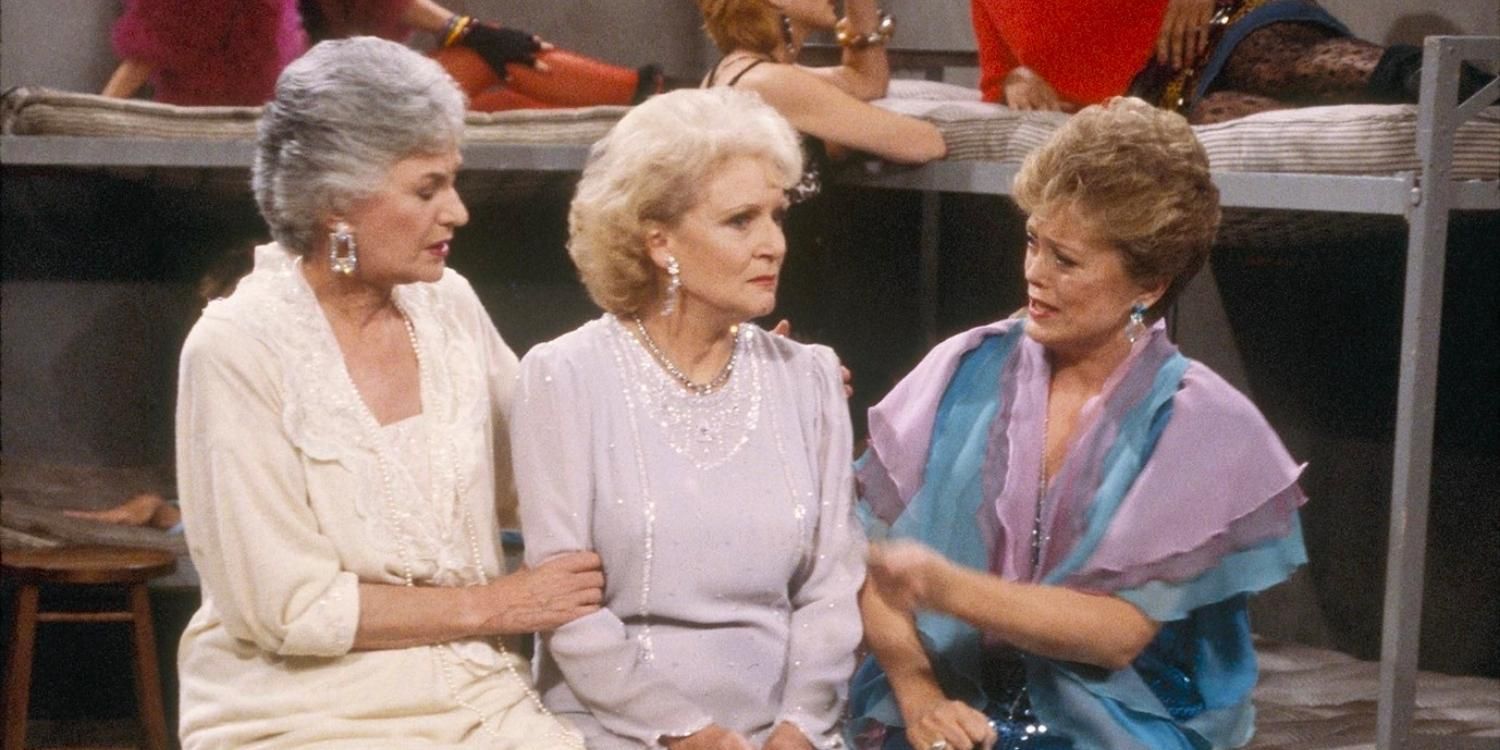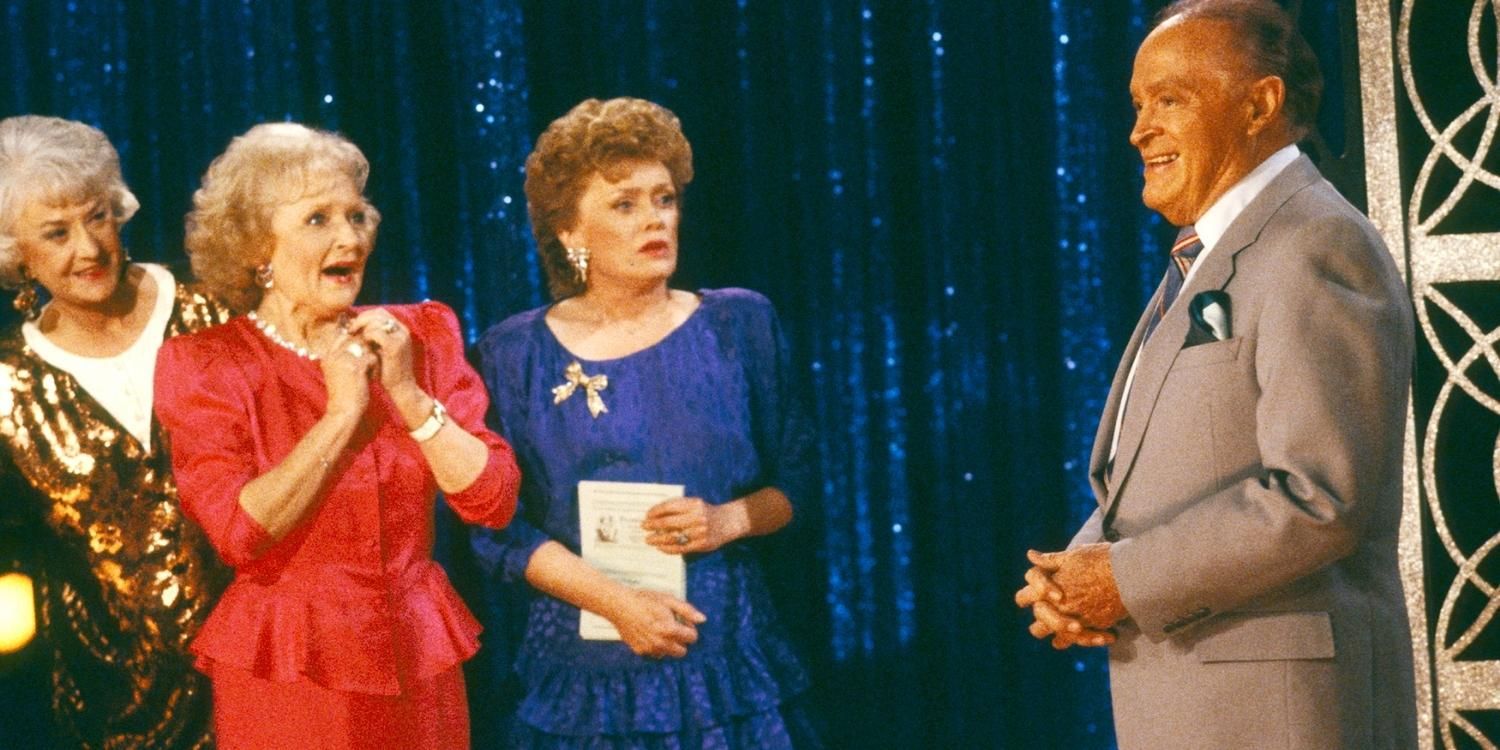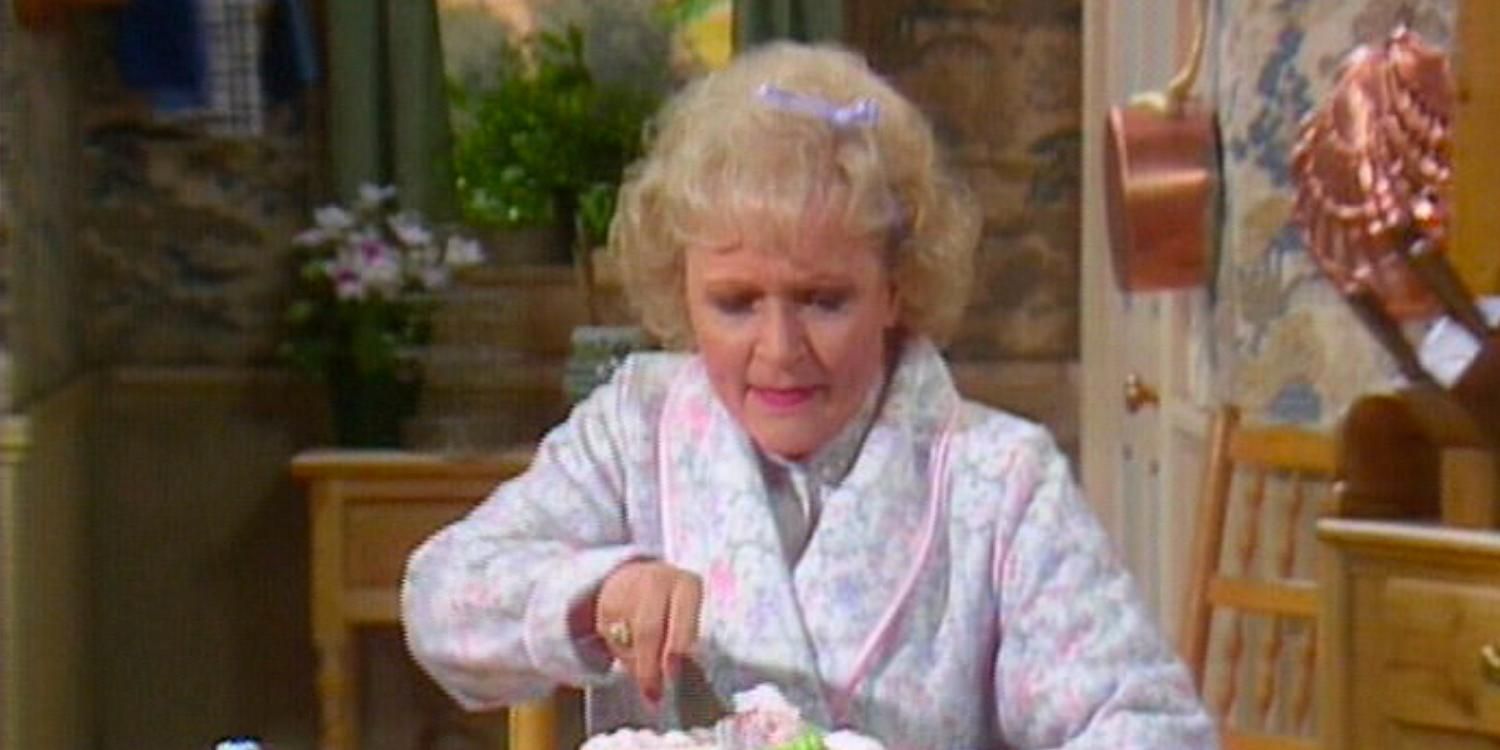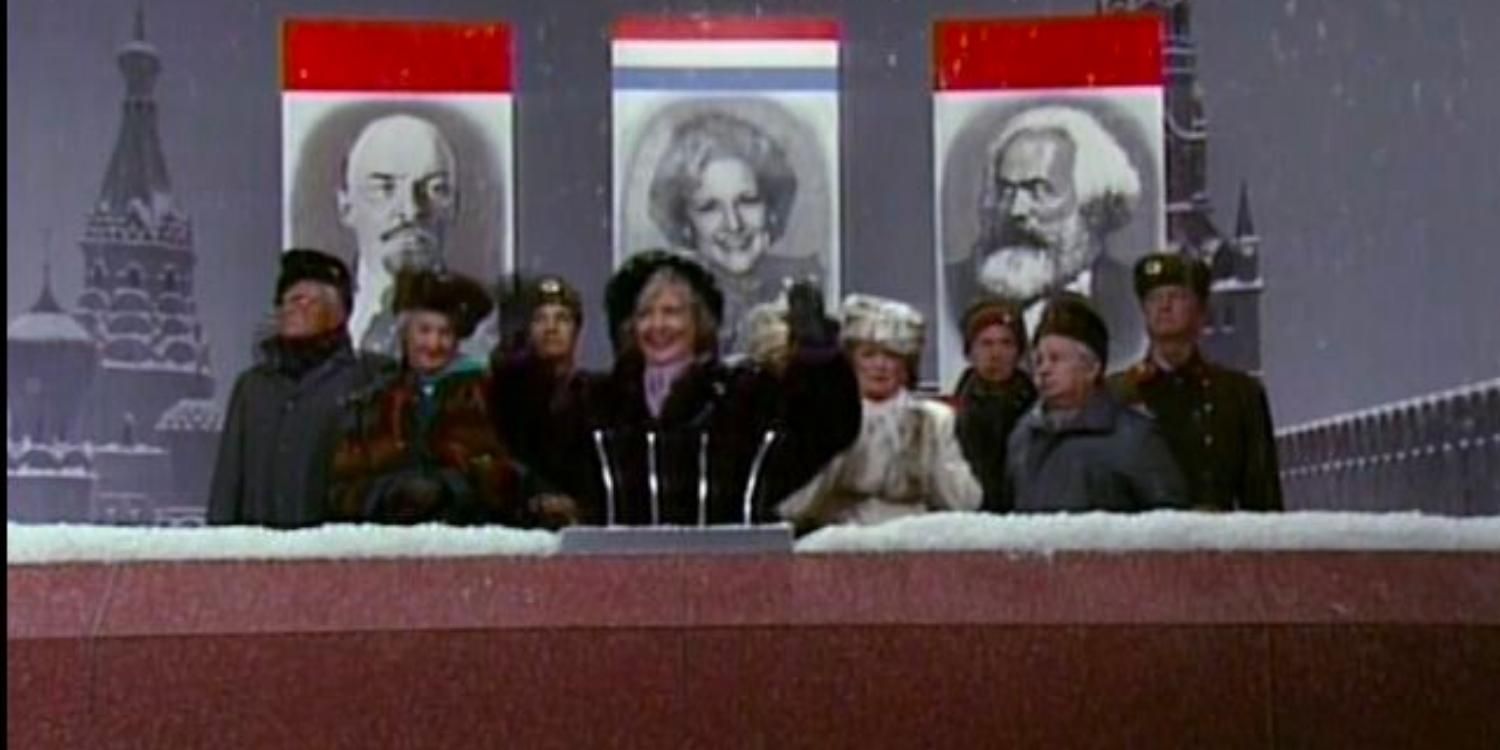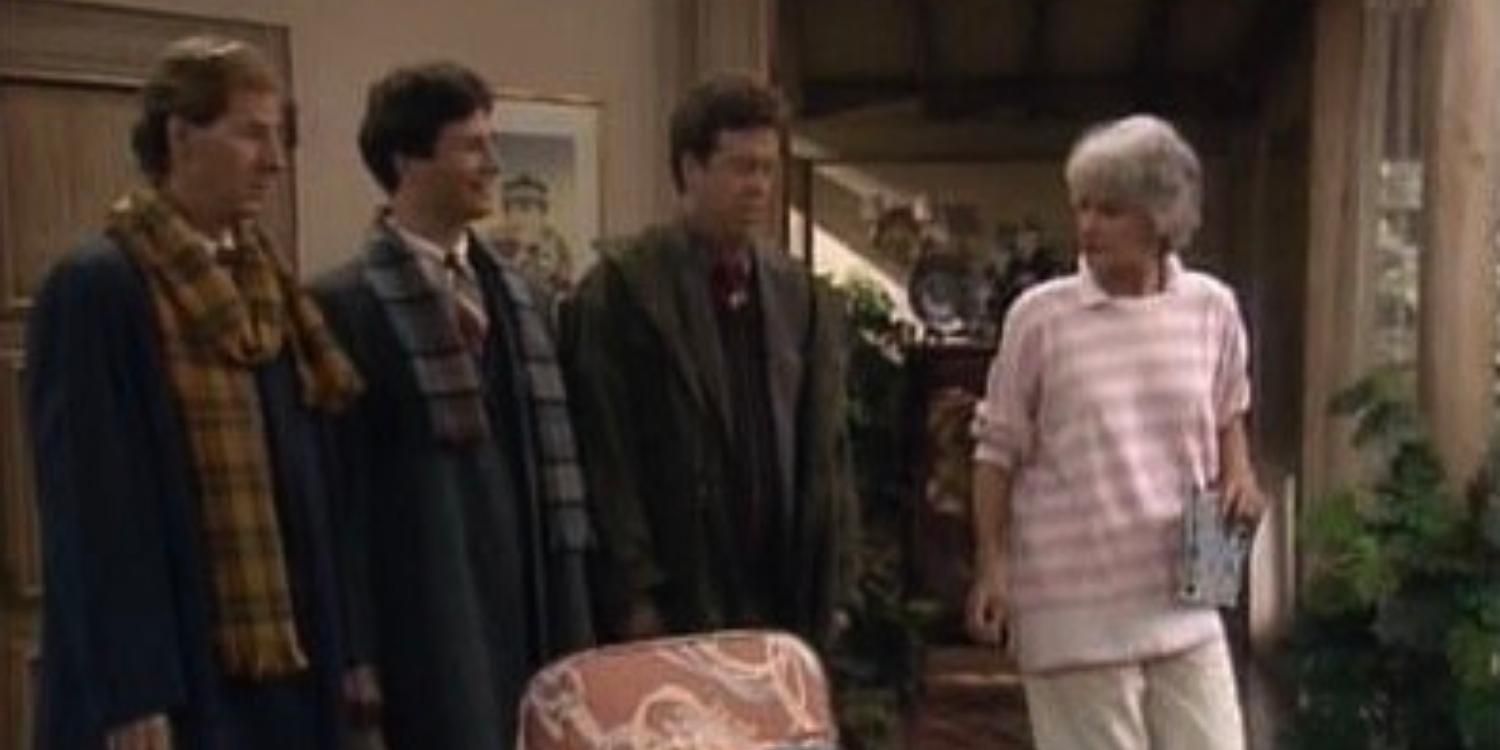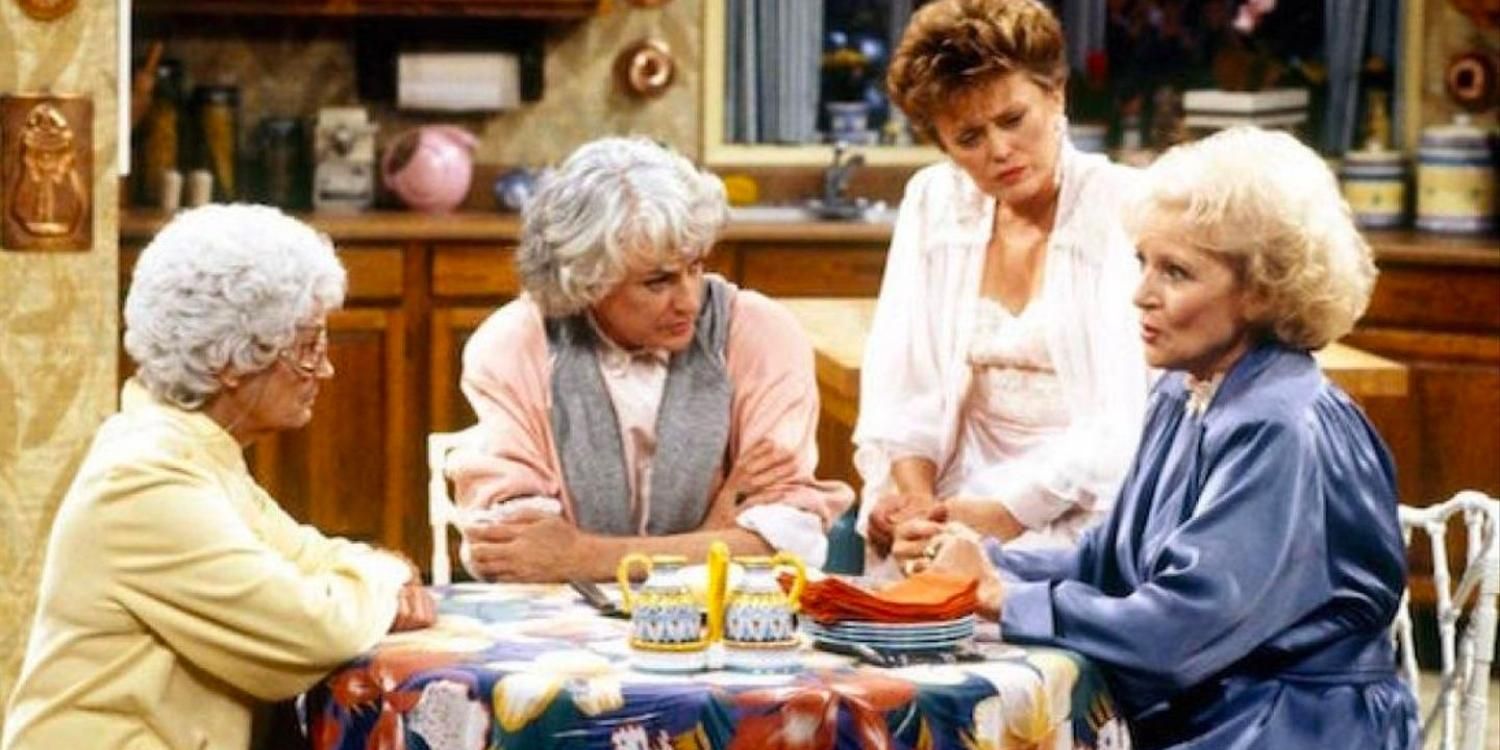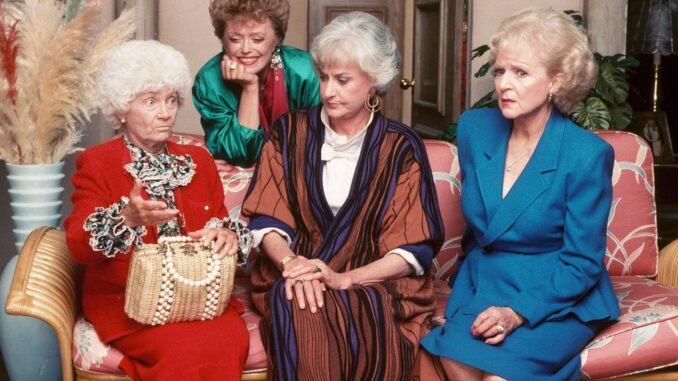
There have been few characters in television quite as beloved as Rose Nylund of The Golden Girls. Portrayed by Betty White, she was the epitome of naïveté, joy, and simplicity. Though she could at times seem stupid to those who didn’t know her, she had a wisdom and a way of looking at the world around her that was all her own.
As a result, she became something of the moral anchor for the rest of the show, and so it is worth taking a look back at the best Rose episodes of this venerable and eternally popular sitcom.
72 Hours (Season 5, Episode 19)
There were numerous times that The Golden Girls was ahead of its time and addressed real-world issues, including in this episode, in which Rose finds out that she might have been exposed to HIV. Even now, so many years after it premiered, it remains a powerful episode, in large part because Rose allows the viewer to see just how shocking and terrifying this potential diagnosis could be.
Fortunately, Rose does not have the virus, but the whole incident shows her how much she can rely on her friends in both the good times and the bad.
Henny Penny – Straight, No Chaser (Season 6, Episode 26)
There are many funny episodes of The Golden Girls, but this often ranks at the top. In the episode, the girls are cast in a grade school production of the classic story of Henny Penny. Rose, of course, with her trademark innocence and simplistic way of looking at the world, is cast as the chicken who believes the sky is falling.
All four women give their usual great performances, but there’s no question that it’s Betty White’s Rose who steals the show. It is an outrageous yet very hilarious Golden Girls episode.
Miles To Go (Season 6, Episode 15)
The relationship between Rose and her boyfriend Miles is one of the best relationships in the entire series, and it’s clear that they love each other. However, things hit a snag when it’s revealed that Miles has been in the witness protection program and isn’t who he says he is.
When he ultimately has to flee, it breaks Rose’s heart. In the final scene, Betty White superbly captures the anguish of someone who has had to watch the love of her life walk out the door, uncertain whether she will see him again.
Once In St. Olaf (Season 6, Episode 2)
There are many family members that come into the show at various points, but arguably one of the most memorable was Rose’s father. As it turns out, he was actually a monk who fell in love with Rose’s mother but had nothing to do with her once she gave birth to Rose (she died shortly afterward).
The reunion between this character and her birth father is extraordinary, in large part because White brings out the many conflicted feelings that Rose has about meeting this man who has been absent for her entire life.
Ladies Of The Evening (Season 2, Episode 2)
Of the many celebrity guests that appeared on the show, arguably one of the funniest was Burt Reynolds, who appears briefly at the end of this episode. Most of the time, however, the episode focuses on Rose, Dorothy, and Blanche as they are mistaken for sex workers and sent to jail.
Its funniest moment, however, belongs to Rose, who regales the other women with the story about how she lost Butter Queen. It is arguably one of the best St. Olaf stories that Rose ever told.
You Gotta Have Hope (Season 4, Episode 17)
The revelation that Rose was adopted was an abrupt change in the character’s biography and a bit of a plot problem, but it’s nevertheless one that Betty White makes work. She allows the viewer to see just how much Rose has always wanted to believe that Bob Hope is her real father, despite having no evidence to suggest that that is the case.
The scene in which she admits that she might have just been a foolish old woman believing in a lie is a heartbreaking moment, one in which Rose reveals just how sensitive she really is.
A Piece of Cake (Season 2, Episode 25)
Aside from Miles, Rose’s husband Charlie was the man that she loved more than anyone in the world. It’s precisely their bond that makes the flashback in this episode–in which Rose has a conversation with her recently-deceased beloved and tells him that she is moving to Miami–all the more extraordinary.
In this relatively short clip, White wrings both pathos and humor from her character, showing Rose’s fragility and strength as she confronts the possibility of moving on from the life that she’d shared for so many years with the love of her life.
Letter To Gorbachev (Season 3, Episode 6)
There have been many movies and TV shows that have dealt with the Cold War, and that list surprisingly includes The Golden Girls. In this episode, Rose writes a letter to Russia’s leader pleading with him to de-escalate nuclear tensions; he, unfortunately, believes the letter was written by a little girl.
Once again, White shows her ability to pull pathos and drama out of a humorous situation and, just as importantly, she shows that Rose has a wisdom that many more “intelligent” people would do well to pay attention to.
Yokel Hero (Season 4, Episode 4)
One of Rose’s most enduring personality traits is her love of her hometown, St. Olaf, in Minnesota. Thus, when she’s nominated for the town’s Woman of the Year Award she’s ecstatic until she finds out Blanche and Dorothy lied on her application.
The fact that Rose is so willing to adhere to the principles of honesty and truth testifies to the fact that, deep down, she really is as good of a person as she often appears to be.
High Life (Season 4, Episode 20)
Even though The Golden Girls never loses sight of the fact that it is a comedy, it was also a show full of many heavy moments, as when it was revealed that Rose has been battling a drug addiction for many years.
It would have been very easy for the show to rely on stereotypes, but instead, it allows Rose, and the viewer, to understand the many complexities that are tied up in the issue of addiction. When, in the end, she announces that she will never be cured, it’s a humbling reminder of the human cost of this issue.
